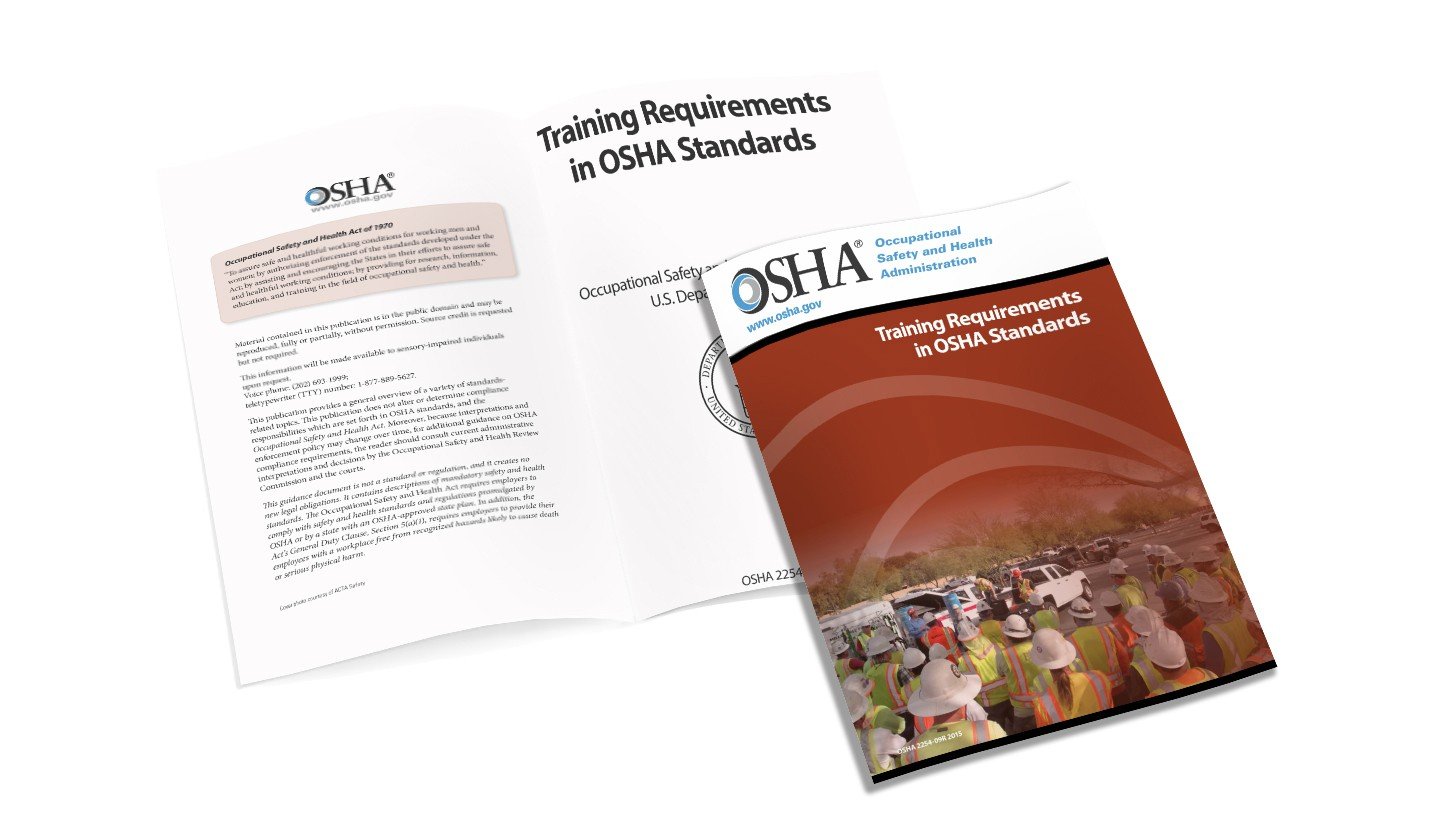Courses
- Safety Training
- HR Compliance Training
- Soft Skills Training
- OSHA Requirements Training
- Search By Industry
- Course Packages
Safety Training
- Accident Investigation
- Active Shooter
- Air Quality
- Asbestos Awareness
- Automotive
- Back Safety
- BBP
- Compressed Gas
- Confined Spaces
- Driving Safety
- Electrical Safety
- Emergency Plans
- Ergonomic Safety
- Eye Safety
- Fall Protection
- Fire Safety
- First Aid
- Forklift
- General Environment
- GHS
- Hand Safety
- Hazardous Spill
- HAZCOM
- HazMat
- HazMat Labeling
- HAZWOPER
- Hearing Safety
- Heat Stress
- Housekeeping
- Janitorial Safety
- Jobsite Security
- Lab Safety
- Ladder Safety
- Lead Safety
- LOTO
- Machine Guarding
- Manufacturing
- Materials Handling
- Office Safety
- Office Security
- Orientation
- Power Tool Safety
- PPE
- RCRA
- Recordkeeping
- Respiratory Protection
- Rigging Safety
- Safety Audits
- Scaffolding Safety
- Slips, Trips and Falls
- Trenching and Shoring Safety
- Warehouse
- Welding
- Wellness & Fitness
- Winter Safety
HR Compliance
Training
Training
- ADA
- Anti-Retaliation
- Background Checks & FCRA
- Compensation Training
- Compliance Training
- Conflict Resolution
- Data Privacy
- Discrimination
- Diversity
- Drugs and Alcohol
- Employee Benefits Compliance
- Employee Classification
- Employee Record Keeping
- Equal Pay Act
- Ethics in HR
- FMLA Compliance
- HIPAA Compliance
- Immigration Compliance (I-9)
- Incident Investigation
- Industry-Specific
- Labor Law Updates
- Leave Management
- Legal Discipline & Termination
- Legal Performance Management
- Legal Performance Reviews
- Practical Discipline & Termination
- Record Retention
- Sexual Harassment
- Social Media & Employment Law
- State-Specific
- Supervisor Training
- Union Avoidance/Relations
- Updates in Employment Law
- Wage & Hour Compliance
- Whistleblower Protection
- Workplace Harassment
- Workplace Investigations
- Workplace Safety and Health
- Workplace Stress
- Workplace Violence
Soft Skills
Training
Training
- Adaptability & Flexibility
- Business Etiquette
- Communication Skills
- Conflict Management
- Creativity & Innovation
- Cross-Cultural Communication
- Customer Service Skills
- Digital Literacy
- Diversity & Inclusion
- Emotional Intelligence
- Giving & Receiving Feedback
- Growth Mindset
- Interpersonal Skills
- Leadership Skills
- Meeting Management
- Negotiation and Persuasion
- Presentation Skills
- Problem-Solving & Decision-Making
- Stress Management & Resilience
- Teamwork & Collaboration
- Time Management & Productivity
- Working with AI
Search By Industry
- Agriculture
- Aviation & Aerospace
- Building Materials
- Ceramics & Concrete
- Chemicals
- Construction
- Defense & Space
- DOT
- Environmental Services
- Facilities Services
- Food
- Freight Delivery
- General Health & Safety
- Glass
- Government Administration
- Healthcare
- Human Resources
- Insurance
- Law Enforcement
- Logistics & Supply Chain
- Machinery
- Medical Devices
- Mining & Metals
- Oil and Energy
- Packaging & Containers
- Plastics
- PR & Communications
- Public Works
- Renewables & Environment
- Retail Industry
- School Safety
- Warehousing
Resources
- Blog
- FAQs
- Safety Tips
- How To Videos
- Safety Toolbox
- Get Our Newsletter









